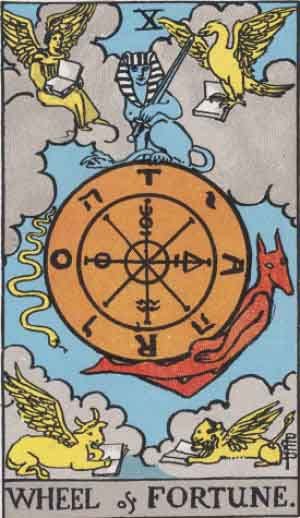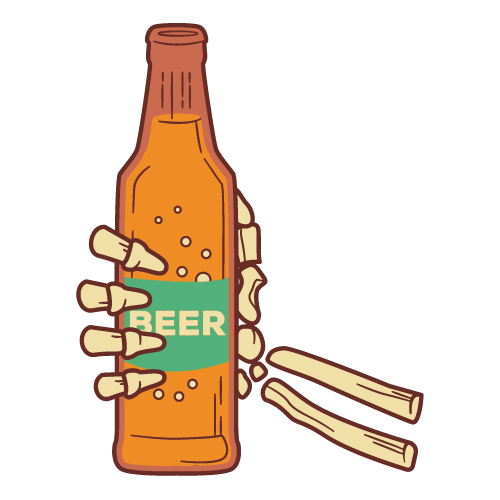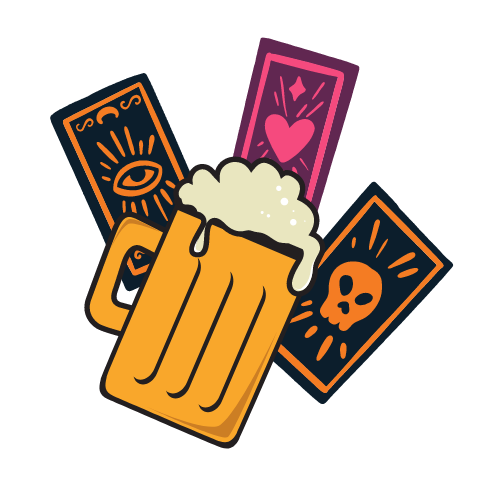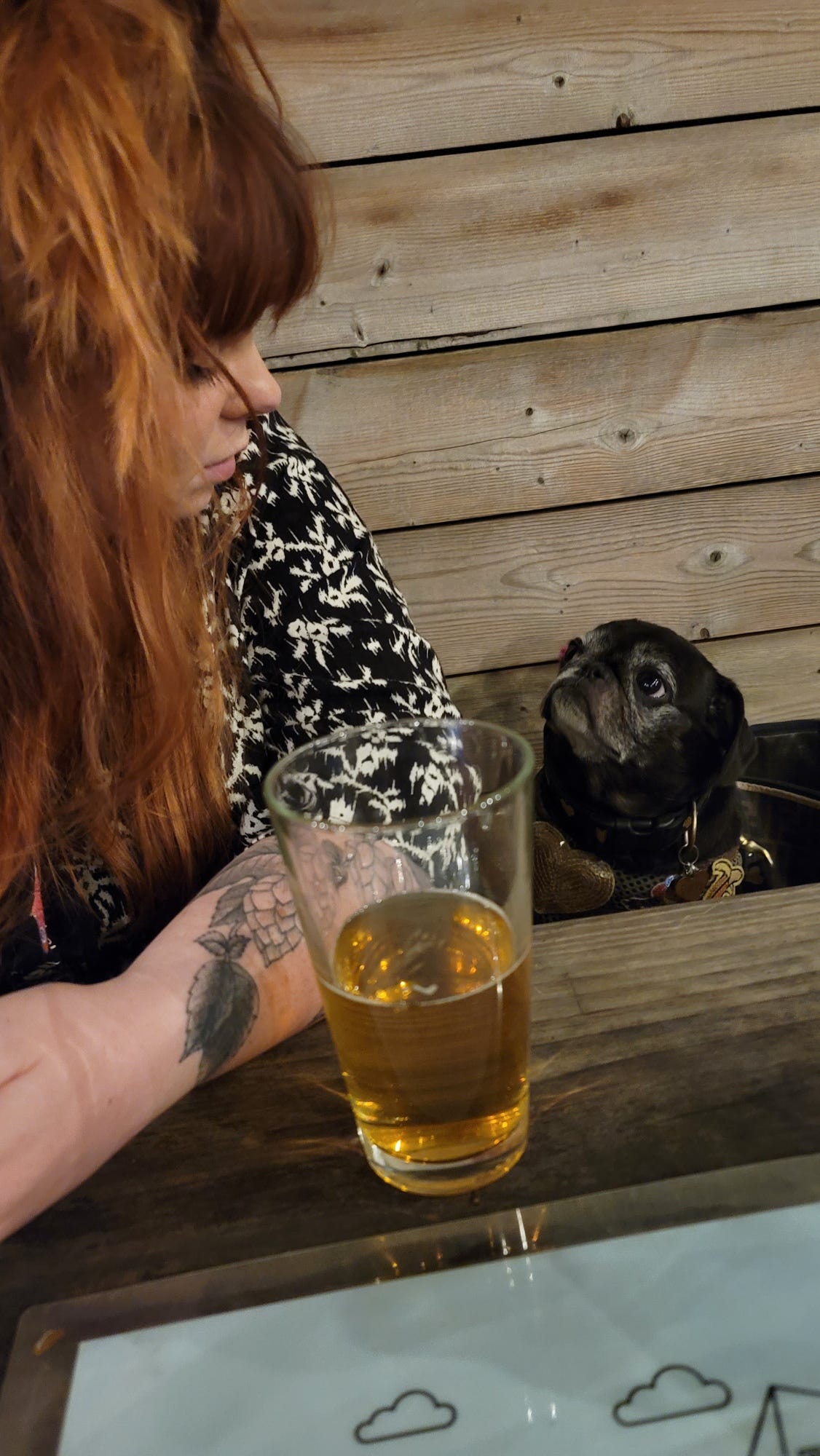15. Festival Safety, Part Two: Codes of Conduct, Safety Measures, and Demanding More
We are getting INTO the nitty gritty on what we need to see in terms of safety measures at festivals; plus a beer for remembering "this too shall pass."
The Safety Measures We Want, Need, and are Starting to See Happen
“I get sexually harassed at festivals every single time to the point where I’m like, ‘I don’t even want to do this anymore’...I don’t know why that [behavior] has to escalate at the festivals. Maybe it’s just a social setting where they’re surrounded by other guys doing it, and they think it’s normal and they normalize themselves.”
This quote from Brienne Allan in Beth Demmon’s story for Good Beer Hunting, “Buzz, Kill—The Physical, Psychological, and Financial Price Women Pay for Working in Beer,” unfortunately, captures the experience of far, far too many womxn at festivals.
Swedish music festival Bravalla was the scene of so many rape and sexual assault reports in 2016 and 2017 that it was canceled “until men could learn to behave.” Until men could learn to behave. Lot to unpack there. The festival is now officially and forever dead, which, wow, speaks volumes. (This BBC article documents a host of festivals and their troubling histories of sexual abuse and assault.)
For part two of this series in collaboration with Women of the Bevolution’s Ash Eliot, we’ll be looking at the safety measures we need at festivals, who’s implementing effective measures, and who’s falling short.
Kimberley Owen, who was generous in sharing her festival experiences in our introduction last week, is also a TEDx event director, and tells me that at TEDx events, there are spaces anyone in attendance can go if anything triggers or upsets them.
“I don’t see why at [festivals], we can’t have that,” she says. “We should have people patrolling to see that everyone’s safe, and a place where, if anything happens, people can report it right away.”
Many of us know we want to feel safer at festivals, and I appreciated hearing Kimberley’s ideas—they feel like tangible steps organizers could take to actually achieve better, more accessible, and more equal safety. In addition to a safe space set aside at festivals, why not a mental health-type first aid station? Festivals have first aid for physical health, Kimberley points out. Why not one or more mental health professionals on-site for anyone who might realize they’re drinking for the wrong reasons, or who have unfortunately just been the victim of harassment, discrimination, or abuse?
Furthermore, Kimberley says, it’s vital festivals have a system for reporting incidents that makes people feel completely safe, protected, and confident. Safe and protected from retribution and further abuse, and confident that something will actually be done about it.
“I think it surprises some venue owners to learn that if they haven't gotten any reports of harassment, it doesn't mean it hasn't happened,” says Shawna Potter, musician, activist, consultant, and author ofMaking Spaces Safer: A Guide to Giving Harassment the Boot Wherever You Work, Play, or Gather. “It means the victim didn't trust the staff to handle it appropriately, or the perceived effort to get it to stop was more frustrating than pretending to ignore it or just leaving. That said, it's 2021! I think it would only surprise venue owners who are exercising willful ignorance to learn that identity-based harassment is a problem worth addressing.”
Potter has plenty of fantastic, effective ideas that are accessible for organizers to start implementing and game-changing for festival participants and attendees in terms of safety. She literally wrote the book on it, as well as publicly speaking on these matters and consulting event producers about them.
“Make sure your staff and security are trained in active listening, grounding techniques, and avoiding victim-blaming,” Potter advises. “Then, make sure your internal protocols and policies are clear, easy to find, widely distributed, and your public policies are just that: public and easy to find. Clear signage will help the day of, while long-term you should be actively including and implementing the expertise of people who face identity-based harassment and violence. That means going further than ‘diverse hiring’—a paycheck is one thing, but they should also be listened to and given leadership positions.
“There’s also a handy website that can walk any group through the act of creating a safer space policy: Safer Spaces. I highly recommend using it and then ensuring your staff know what to do in the moment. You can also hire me to train your staff and help you improve or implement your current policies.”
Honestly, when you think about it, the need for safety is obvious and the fact that that alone hasn’t motivated enough organizers to make drastic changes is maddening. You don’t want to think this is what it takes, but unfortunately, money talks, so let’s talk money. It’s just good business to improve safety measures. More people will feel comfortable attending your event. A safer event is a more appealing event to more people.
We do have to allow for the fact that movement toward progress can be cumbersome right now—every aspect of the hospitality and event industries, and beyond, is fighting for its life and dealing with unprecedented challenges due to the pandemic. But, as Ash points out, identity-based harassment and violence is a public health issue. There is absolutely no difference in urgency between that and the things that festivals do have measures in place for, like fire safety, CPR and defibrillators, and safe food handling. Alongside the pandemic, the past year and change has also been a tumultuous period laying bare inequities and lack of safety for BIPOC, women, LGBTQIA+, differently abled people—anyone in an underrepresented and/or marginalized community. So, yes, we’re in a pandemic and it’s hard to make change. But the change still has to happen. And it’s just good, common sense.
“There’s a ton of competition in these industries and if we can shift from thinking that creating a welcoming and safe environment is an opportunity, rather than an obligation, it could easily attract more business from nicer customers who deserve leisure time and are willing to pay for it,” reasons Potter.
Some festival organizers are starting to take steps toward this level of safety. But are those steps enough?
Codes of Conduct
As the Brave Noise beer collaboration is pointing out for breweries, safety for all starts with a code of conduct. This is the blueprint to how you are going to ensure a safe space for employees and customers, or, at festivals, for employees, vendors, performers, and attendees. What is your stance on harassment, for example, and how are you going to both publicize that and enforce it? Frankly, a festival not having a code of conduct that’s easy to find on its website is, at this point, a red flag.
“Stay Hydrated. Wear Sunscreen. Get Consent.”
It’s cheeky wording (I’ll concede that you might feel pressure to stay in “cool festival mode” to keep the kids from checking out), but it’s a strong stance that Riot Fest has taken, one that’s very easy to find on its website. Just click through to the FAQ page for the event, taking place September 17-19 in Chicago, and you’ll find an explanation of Riot Fest’s “ZERO TOLERANCE POLICY,” which also links out to an even more comprehensive guide with “do’s” and “don’t’s".” The policy was formed with the help of Between Friends, an organization against domestic violence, and Resilience, an organization against sexual violence, who partnered on the initiative #OurMusicMyBody. Geared toward ending sexual harassment and violence within the music community, this initiative will have a booth at Riot Fest.
Coachella (plagued by unsettling reports in the past) has a code of conduct structured as an entire program called every one. This plan lays out several really significant efforts toward a safe space for all, and this is super impactful considering Coachella’s gravitas. The fest, next scheduled to take place in April of 2022, is—let’s face it—the music festival these days, and so it’s one with the power to really set the tone for all other festivals. Again, it’s just good sense if you’re a festival organizer to make sure you’re keeping up with the Coachella’s of the scene.
Speaking of absolutely epic festivals with major influence, Glastonbury is a bit lacking on the code of conduct front in terms of something super easy to find with clearly laid out values and actionable items. They do have a published harassment policy and diversity statement, and we’re going to come back to them in a moment because they’ve actually got some fantastic resources at the event, itself. But, it would be great to see that organized in a straightforward code of conduct.
Untappd’s next big festival is October 1-2 in San Diego; they do have a code of conduct but it’s, again, lacking. It’s a blurb that condemns harassment, discrimination, assault, and abuse, and yes, absolutely, bravo, but…that’s not a hot take. What’s the plan? Along with the brief code of conduct, Untappd says that its parent company Next Glass is in fact working on a formal plan. Ash connected with Next Glass to dig in here. Apparently, the code of conduct will be updated and shared with attendees and the beer community prior to the festival date. But there has been no acknowledgment yet of on-site activations and resources at the event, itself. “As a company with such a wide influence in the beer community, here’s a chance for them to step up and truly lead the way for other event organizers to follow,” Ash says.
Next Glass’s other big beer brand that also has its own festivals is Beer Advocate, of course. This thread from May of this year by BA founder Todd Alstrom is worth a read, as is the Twitter thread from Dovetail Brewery brewer Jenny Pfäfflin that Todd references. That’s where Jenny calls out the urgent issue of safety for women at beer festivals, and points to the codes of conduct for SXSW and the Great American Beer Festival; SXSW list actions to take in case of discrimination, abuse, or assault (contacting them, the police, or the SAFE initiative) while GABF is like, “Be nice, guys!” As far as Beer Advocate events go, Alstrom lists some code-of-conduct-related measures and reporting systems that sound great, but we’ll have to see what’s put in place when BA resumes live festivals. Even though their first in-person event since the pandemic’s start hasn’t happened yet, considering the current climate, it is curious why Next Glass hasn’t gone ahead and publicly addressed Alstrom’s proposed initiatives or any other plans.
For the Craft Brewers Conference, happening in Denver September 9-12, the Brewers Association published an easy to find code of conduct. Once again, it’s pretty short and sweet, but points for making it easy to find and also requiring ticket buyers to agree to it at the point of purchase. There are some other promising measures taking place at the CBC we’re about to discuss, too.
The Everyone Welcome Initiative created a sort of manifesto template for beer festivals in the United Kingdom to use as a jumping-off point. They can join the united front by posting these statements on their website and build their plans from there. Granted, this was created back in 2018 so there is certainly now room for growth, but these kinds of accessible, shareable plans are simply beneficial for all.
Codes of conduct are step one. The question is, for festival organizers: you made the plan, now what are you going to do about it?
Safety Measures
Researching what safety measures are officially in place for current festivals, it’s encouraging to find that some of the best-case-scenario, wish-list systems are already starting to roll out at some events, and this is happening on a global stage.
When Ann V. Reilly became the executive director of the New York City Brewers Guild, she quickly got to work on safety measures for events, and implemented a safety advocate system. This first rolled out at Blocktoberfest in October of 2019, where Reilly says they posted signage about the advocates. From there, the guild continued to ramp up and improve the program. At the Opening Bash for New York City Beer Week in February of 2020, the safety advocates wore neon pink shirts emblazoned with “Safety Advocate” in addition to the signage, and their presence was mentioned ahead of time on Eventbrite.
“Moving forward, we’d decided we want to indicate there are safety teams on hand so people know to look once they’re there,” Ann told me. “If someone comes on their own or in a group...people attend beer festivals all different ways, and we want to make sure everyone attending feels safe. What happens if someone consumes a little too much, or has trouble accessing an Uber? There’s someone there who’s going to notice that and help out. The advocates are paying attention to people who are visibly intoxicated and checking in with them. Are they with the same people they came with? Does everyone feel safe and okay?”
In addition to being ready to help with any variety of issues that may arise around alcohol consumption, getting home safely, etc., the safety advocates are also a conduit for safe reporting that attendees can feel confident in. And the NYCBG is also working with third-party reporting systems like WeVow for anything anyone doesn’t feel comfortable addressing directly or at an event. Ann says the guild also works with OutSmart NYC for specific training on how to spot situations, what to do as a bystander and as an upstander, and how to interject. Ann and guild members are still continuously working to add more layers of safety measures to festival plans.
Circling back to Coachella and to the brilliant ideas for on-site safety measures we spoke about up top? Yup, a designated safe space and mental health first aid are both actual things at this landmark festival. Back in 2018, LA-based consulting agency woman. expanded on its program to overhaul nightlife and events with safety for women in mind with “soteria.” (named for the Greek goddess of safety and preservation). soteria. launched at the FORM Festival in Arizona and Summit LA, providing 24-hour, on-site access to mental health and crisis de-escalation. With Goldenvoice Productions and under the every one initiative, that program came to Coachella in 2019. Anyone at the festival can easily access the “every one” tent to find professional assistance, support, or quiet time.
And because I promised we’d also revisit CBC: the Brewers Association has partnered with reporting system #NotMe for accessible, safe, secure reporting for any person at the festival who experiences any instance of discrimination, harassment, abuse, assault, etc. There will be a QR code to instantly pull up the #NotMe app on the badges given to both employees/vendors and attendees. In addition, there are also seminars dedicated to harassment and inclusion, which have already started: you can watch replays of “One Change Can Make All the Difference: Create a Speak-Up Culture to End Workplace Harassment” from August 31 here.
Glastonbury, too, has implemented its version of mental health first aid and safe spaces. “Green Welfare” is run by nonprofit festival consultancy Festival Welfare Services, where people can go if they’re feeling unwell in any capacity or need a safe haven. And a team called The Samaritans also runs 24-hour, on-site emotional support with trained volunteers ready to assist with any variety of circumstance.
While we’re across the pond, let’s talk about the immensely important Safe Spaces Now initiative from UN Women United Kingdom. This movement is asking organizers, venues, and companies to commit to safety both through forming and enforcing their own plans and also condemning any abuses. Festivals like Strawberries & Creem, happening September 18-19 in Cambridge, are partnering with UN Women UK to create an entire safety-focused strategy (you can read about the Strawberries & Creem partnership here, though I do wish there then was also code of conduct information and specifics about on-site measures).
To galvanize this movement, UN Women UK has created an open letter demanding safety at festivals, venues, and beyond. I highly recommend reading the letter, which drills in on truly unsettling statistics like the fact that “more than 7 in 10 women have been sexually harassed in the UK, and over 40% of women aged under 40 at a live music event. Within the music sector, over 60% of workers have experienced sexual harassment. The vast majority of incidents go unreported, with over 95% of women not reporting sexual harassment.” Prominent UK musicians as well as festivals like Glastonbury, The Eden Project, and DICE have signed the letter, which hopefully drives serious change.
Speaking of musicians taking up the torch and making sure the festivals they play are safe, next week, we’ll be discussing accountability and vetting. How do you as an organizer OR a vendor/performer OR attendee make sure the event you’ll be at is safe and reflects your values, and that the same can be said for all participants? How can you make sure a brewery or band is safe and contributing toward change for the better?
Beer Tarot!
This week I pulled the…WHEEL…OF…FORTUUUNE.

The Wheel of Fortune speaks to fate, change, and intuition. A lot of its meaning literally has to do with the cycle that is life, and things coming full circle. Go figure.
What this means is that if things are shit right now, you can have hope because they’ll improve. If they’re great, well, be prepared for things to dip at some point. Basically, it’s about having the sort of awareness that most situations are temporary, and acting accordingly: persevere through bad times, savor good times. There’s big this too shall pass energy here, as well as strong live in the moment vibes.
There’s also an element of karma, with the whole wheel things—what goes around comes around, after all. So, don’t be a jerk! Furthermore, this card signals reaching out to friends and family for any help you need during periods of change and growth, and trusting your intuition as decisions and new situations come your way.
Fittingly, a brewery called The Fermentorium based in Wisconsin has a beer series called This Too Shall Pass—it’s a whole mood; drink it, learn it, live it. Embrace your intuitive, rolling-with-it, Wheel of Fortune self with this hazy New England IPA brew, made in different batches with different hops.
This Week’s Boozy Reading Rec
Should you need to unwind a bit but not leave beer totally behind, I have just the lovely read for you. Kristen Arnett is a brilliant author, writer, and Twitter follow; it is on Twitter, in fact, that you can catch her talking about the simple joy of simple beer. For Catapult, Arnett writes about “dad culture” with Let’s Crack Open a Couple of Cold Ones. The essay talks beer’s connection to being a “dad,” which is not about being a man with a child but instead about being the kind of person who’s always down for a fun chat and likes taking care of people. Who wouldn’t drink to that?
BONUS: This Week’s Boozy Listening Rec
Ash is the guest on newsletter favorite Brews with Broads this week! This was a real worlds-colliding moment for me—Ash Eliot and Hannah Kiem, two actual legends. This episode is a great way to find out about Ash’s work, drive, and Women of the Bevolution.
Until next week, here is a picture of Darby and I in conversation at local beer bar Sea Witch. (And no, despite how many times I ask her, she will not tell me why is she so small.)




